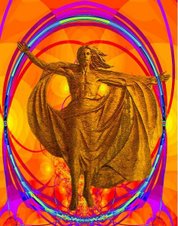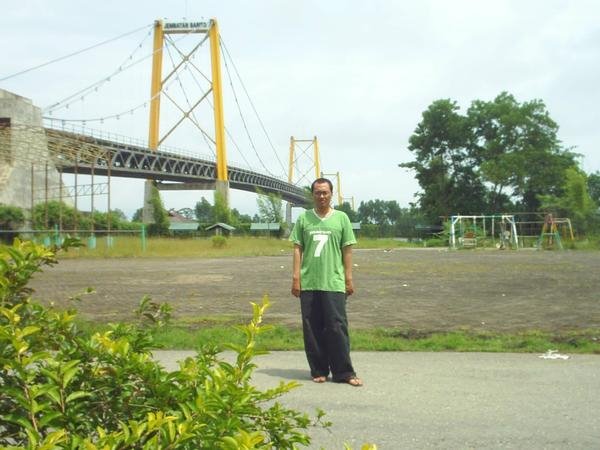
MUSLIM WORLD: Film about gays and Islam shown for first time in Arab world
September 18, 2010 | 9:09 am
Picture 1 Can one be gay and a pious Muslim at the same time?
That's the topic that Indian Muslim film director Parvez Sharma explores in his controversial 2007 documentary "A Jihad for Love" through a range of colorful characters.
Among others, viewers are introduced to a group of homosexual Iranian asylum seekers in Turkey, an openly gay Muslim imam, and a devout Egyptian lesbian who is struggling to cope with her faith and her sexual orientation.
Sharma recently traveled to Lebanon for the screening of his film in Beirut, which marked the first public showing of "A Jihad for Love" in an Arab country.
Babylon & Beyond sat down with Sharma to talk about his film, Islam and homosexuality, and his upcoming controversial projects.
"I was a bit apprehensive at first because I realize that people in Lebanon have a complex relationship to religion, so I was worried how they would react to such a shamelessly religious film," he said. "At the same time I was aware it was elite crowd. It wasn't exactly Hezbollah coming to see it. So I don’t think all of Beirut saw my film. I think a small bubble of it did."
You've shown the film in other countries with large Muslim populations but never before in an Arab country. Why is it so hard to screen it in the Arab world but not in Indonesia for example?
I think there is a greater influence of Wahhabi ideas in the Arab mindset. But I also think it has to do with democracy. Being censored as an artist is part of life [in the Arab world], which is not really the case in Indonesia or in India. There is greater artistic freedom elsewhere than Egypt, which is like a dictatorship and a police state. There is also sometimes a close-mindedness when it comes to people who are not being in a complete participatory democracy.
Prvez
I am not saying India and the others have problems but they are different in that experience than people in the Middle East. War and totalitarian regimes .... such things close cultural spaces somehow. You can feel it in the air.
What was your goal with the film and do you feel like you have accomplished it?
My goal was to open the discussion and to stop the silence. Have I stopped the silence? Yes. Have I found a solution for this issue? No. I don't know if a Koranic solution is possible. First, because I think Muslims are taught not to mess with the Koran. Secondly, there are more than 1 billion in the Muslim world. Do you think the entire umma will agree that homosexuality is OK? Muslims are too divided to agree on one thing.
So what's the solution in your opinion?
Does one approach the issue from a religious or from a human rights perspective? I don't know. But one thing is important: to reform religion you need to do it from within the religion. Only religious people will find a solution. Religious Muslims will find a solution but someone from outside will not.
Do you feel that there is a difference in how Shiite Muslims and Sunni Muslims view homosexuality?
I think Sunni is influenced a lot by the Wahhabi ideology, and I think cultural of disagreement is more pronounced in Shiite Islam.
What's the overall feedback on the film been like?
It’s been divided. But ... the film has not been attacked by conservative Muslims because I think they realized that mine is a Muslim camera. I am not attacking my own religion. The film is not an attack on Islam. If it was, I would be dead.
-- Alexandra Sandels in Beirut
Photos, from top: "A Jihad for Love" film poster; film director Parvez Sharma. Credit: Parvez Sharma\
This review is from: A Jihad for Love (DVD)
Director Parvez Sharma spent more than five years traveling throughout the Muslim world and interviewing lesbians and gay men about their life, their faith and their fears as followers of Islam. The results are enlightening, heart rendering and, at times, shocking. Like the documentary about gay people in the Orthodox Jewish world, Trembling Before G-D, A Jihad For Love restricts itself to the paradox of religious followers of a faith that seemingly rejects their existence. Of course, the penalty for homosexuality is far more severe in countries ruled by Sharia law, but it is amazing to see and learn how the faithful deal with what must seem like overwhelming obstacles in simple things that gay people in the Western world take for granted.
I learned quite a bit from this film that I was previously unaware of, such as the fact that Turkey, although overwhelmingly Muslim, has no laws forbidding homosexuality, and attitudes there concerning homosexuality have always been more relaxed than other parts of the Muslim world. I also was under the false impression, as many Westerners are, that jihad means "Holy war". It actually means "struggle". Thus the film's title is quite apt, and because the film's creator / director is himself a member of the Muslim faith, the film exudes an aura of self-assured confidence, familiarity and respect for its subject matter that many documentaries cannot hope to achieve. In modern Pakistan, of all places, the Sufi sect celebrates the love of a 16th century poet and Sufi saint, Shah Hussain, for a Brahmin boy named Madho Lal. Each year on his urs (death anniversary) their love is celebrated through ritual dances held in the shrine near the tomb of the two lovers. The scenes of Muslims dancing and celebrating this love are jarring, and totally at odds with what many in the West have come to expect from the Muslim world.
One of the most striking things about this documentary is how Mr. Sharma managed to get the men and women interviewed in the film to openly talk about themselves, although most of their faces are not shown. Even though a gay Muslim himself, it must have been very difficult to gain their trust. More striking still is the devotion to their religion that these people still have, and one contrast with Western culture is how close they still are to their parents, and how accepting their fundamentalist parents seem to be, despite the cultural and religious taboos against same-sex love. That is to say, many of the gay people profiled in the film are still close to their families, whereas in Fundamentalist Christian families, many gay children are rejected by their parents completely. There is even a wonderful segment where a Turkish lesbian brings her partner to meet her mother.
There is also a scene where a South African Muslim confronts an Imam, and tells him that the verse in the Qur'an which condemns homosexuality (there is only one, outside of the story of Sodom & Gomorrah) is open to interpretation. The Imam responds that the only portion of Muslim law about homosexuality that is open to interpretation is the severity of the punishment to be inflicted. Such complete close-mindedness will not surprise anyone who has ever tried to argue gay rights with a Christian fundamentalist. It has long been my understanding that one of the most severe problems with homosexuality and Islam is that the Muslim religion has no central leadership, in that almost anyone who is a member of Islam can study to be an Imam and so become a spiritual leader and recognized as an authority on the Muslim religion and what it teaches. As such, many of the leaders of the Islam faith are those who are most fundamental in their interpretation, although the term Imam itself differs completely depending on whether one is a Sunni or a Shiite, the two largest sects in Islam. This documentary is extremely eye-opening, shedding light on what heretofore has only been a shadowy world of isolation and self-hate. It is sure to engender discussion among Westerners, and may even result in some dialogue within the Muslim world. And at least that's a start. Highly recommended.






No comments:
Post a Comment